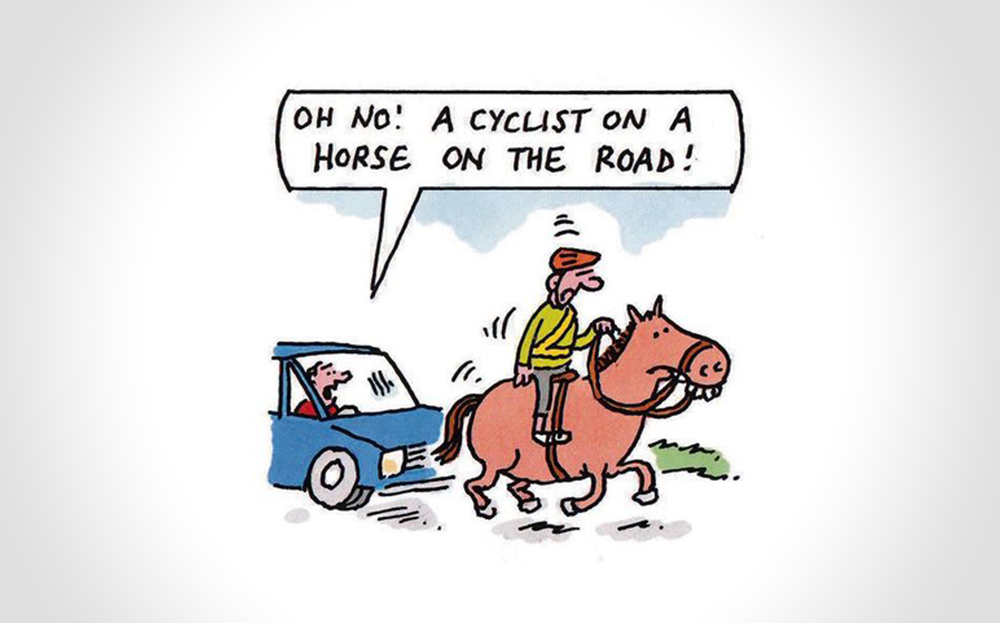Letters of the week, September 21
The issues that got you talking this week.
Spooked by horses
Mike Powell expressed his concern “that anyone can buy a bicycle from a shop” (“Uneasy riders”, Points, last week). What concerns me more than foolish cyclists is that anybody can jump on a horse and ride it on the road. I find that really scary.
David Booth, Macclesfield, Cheshire
Buyer’s market
Mike Powell leads a very blinkered life. When was the last time he purchased a car and the seller asked him to prove his competency to drive or indeed offered him any guidance or instruction on how to drive?
Michael Ward, West Wickham, Kent
Powering down
The UK is offering electric-powered vehicles every possible subsidy, but has no one noticed the country seems to be sleepwalking into a power-generation crisis? This winter will see us with almost no spare electricity generation capacity.
If these subsidies are successful in persuading a few million electric vehicles onto the road, the chaos caused by the lights going out in 1973 will be as nothing next to the effects on society when critical computer systems crash through lack of power.
John Battersby, Wadebridge, Cornwall
Naked joy
With reference to the question of who will be the last recipient of a tax disc “failure to display” notice (“Slipped disc”, Points, last week), it will probably be me. Mine flew out of the passenger window the other day and I have been driving “naked” ever since. The experience is exhilarating.
John Woodhouse, Montacute, Somerset
Clone catcher
A possible answer to car-cloning (“Death of the disc is music to the ears of car crooks”, August 31) is to use numberplate cameras to collate any identical registrations read within a 24-hour period. Any duplicated registrations detected can be passed to the police, and registration data can be compared during a vehicle stop.
David Aitken, Glasgow
In the dark
Here in North Yorkshire, 240 miles north of London and 200 miles south of Edinburgh, the sun appears on the horizon around 8.30am in December and sets around 3.30pm (“Time zone could split UK even if referendum doesn’t”, News, last week).
Harold Wilson’s government kept the country on permanent summer time for a couple of years. Road accidents soared; productivity fell; schoolchildren had to be given fluorescent tabards to make them more visible going to school. What is the advantage of seeing a sunset at 4.30pm?
Peter Sotheran, Redcar, North Yorkshire





